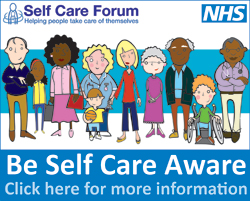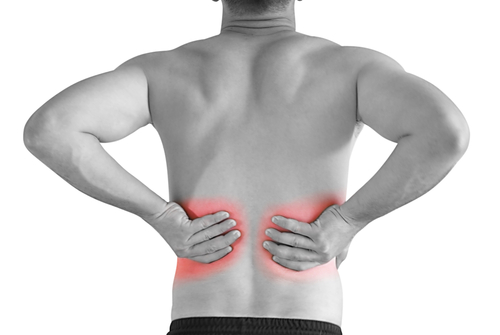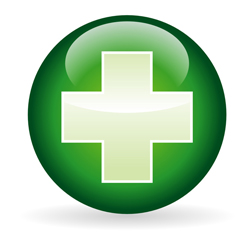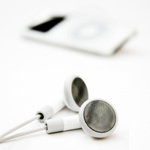Get the Right Treatment
Every year, millions of us visit our GP with minor health problems that can be easily resolved without a doctor's appointment.
It is estimated that every year, 50 million visits to the GP are made for minor ailments such as coughs and colds, mild eczema, and athlete's foot. By visiting your pharmacy instead and managing the minor ailment yourself could save you time and trouble.
Self-care
 Keeping a well stocked medicine cabinet at home can help you treat many minor ailments. Colds, coughs, indigestion and many other minor complaints can all be treated with medicines that are available over the counter.
Keeping a well stocked medicine cabinet at home can help you treat many minor ailments. Colds, coughs, indigestion and many other minor complaints can all be treated with medicines that are available over the counter.
Your pharmacist can advise on what you might find useful to keep in your medicine cabinet. Always follow the instructions on the medicine label and consult your doctor if the illness continues or becomes more severe.
 We are keen to help patients improve on self help and hope that the following information will offer some insight into that.
We are keen to help patients improve on self help and hope that the following information will offer some insight into that.
Take a look and see if you can improve your own understanding of your health and well-being! Please encourage others to look here too.
Below is a list of ailments that can be safely self managed. You will see that you can take a look via the hyperlinks at the NHS inform website NHS Inform which can offer you information about managing your condition and self-help.
Here are some common problems that can be self managed without having to see the doctor:-
Living with Pain

The NHS website contains lots of useful information, tips and advice on living with chronic pain as does the NHS Inform website.
Help from your GP and use of NHS services dedicated to pain management can help make sufferers more independant, reduce the severity of pain and assist in day to day with coping with what can be a debilitating condition.
Useful Links
These links all come from trusted resources but if you are unsure about these or any other medical matters please contact your doctor or pharmacist for advice.
Your Local Pharmacist
 Pharmacists offer professional free health advice at any time - you don't need an appointment. From coughs and colds to aches and pains, they can give you expert help on everyday illnesses. They can answer questions about prescribed and over-the-counter medicines. Your local Pharmacist can also advise on healthy eating.
Pharmacists offer professional free health advice at any time - you don't need an appointment. From coughs and colds to aches and pains, they can give you expert help on everyday illnesses. They can answer questions about prescribed and over-the-counter medicines. Your local Pharmacist can also advise on healthy eating.
Pharmacists can also advise on health eating, obesity and giving up smoking. Some pharmacists have private areas where you can talk in confidence. They may suggest you visit your GP for more serious symptoms. It is possible to purchase many medicines from the chemist without a prescription. Watch this short video on how you can get the most out of your local pharmacy
First Aid
 First Aid - MP3 Downloads
First Aid - MP3 Downloads
To save them on your computer, right-click on any of the links below and then click 'Save Target As..." . Click on any of the links below to play the audio files:
Burns - Explains the immediate treatment for burns and scalds.
Fits - How to deal with fits (convulsions/seizures) in adults and young children.
Wounds - Immediate actions for wounds, bleeding, and bleeding associated with fractures.
Unconscious patient who is breathing - How to deal with an unrousable patient who IS breathing (includes recovery position)
CPR for adults - Adults who have collapsed, unrousable and NOT breathing.
CPR for babies - Babies who are unrousable and NOT breathing.
Collapsed patient in detail - Explains the complete scenario including checks for breathing, circulation, etc.
These files have been prepared by Sussex Ambulance Service and comply with European Resuscitation Council Guidelines.
Accident & Emergency (A&E)
Major A&E departments assess and treat patients who have serious injuries or illnesses. Generally, you should visit A&E or call 999 for emergencies, such as:
- loss of consciousness,
- pain that is not relieved by simple analgesia,
- acute confused state,
- persistent, severe chest pain, or
- breathing difficulties.
If you're injured or seriously ill, you should go, or be taken, to A&E. If an ambulance is needed you can call 999, the emergency phone number in the UK. You can also dial 112, which is the equivalent for the European Union.
Major A&E departments offer access 365 days a year and usually open 24 hours a day,please call 111 before going to A&E. Be aware that not all hospitals have an A&E department.
NB: Hospitals that only have Minor Injuries Units are not equipped or staffed to deal with serious or major emergencies